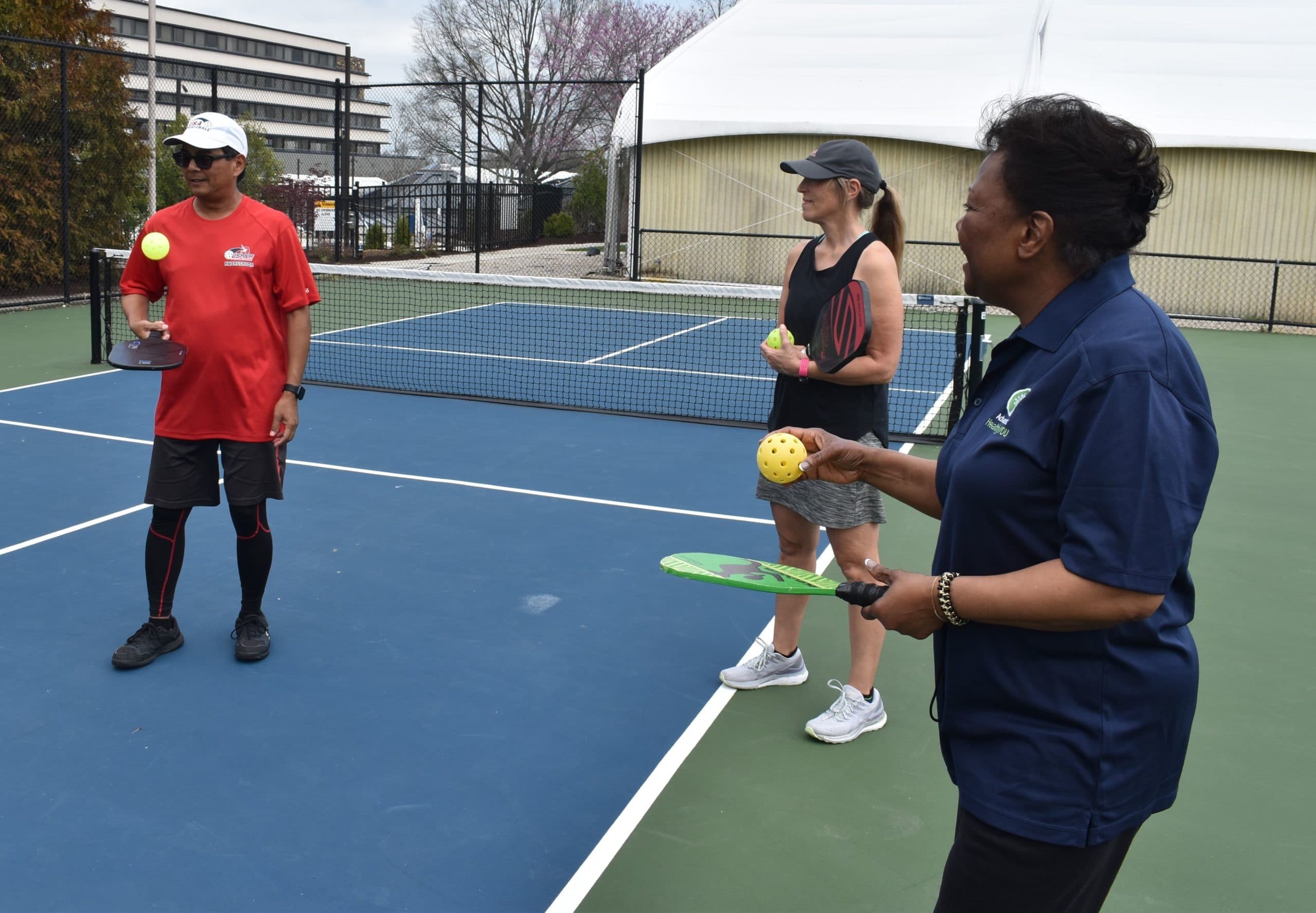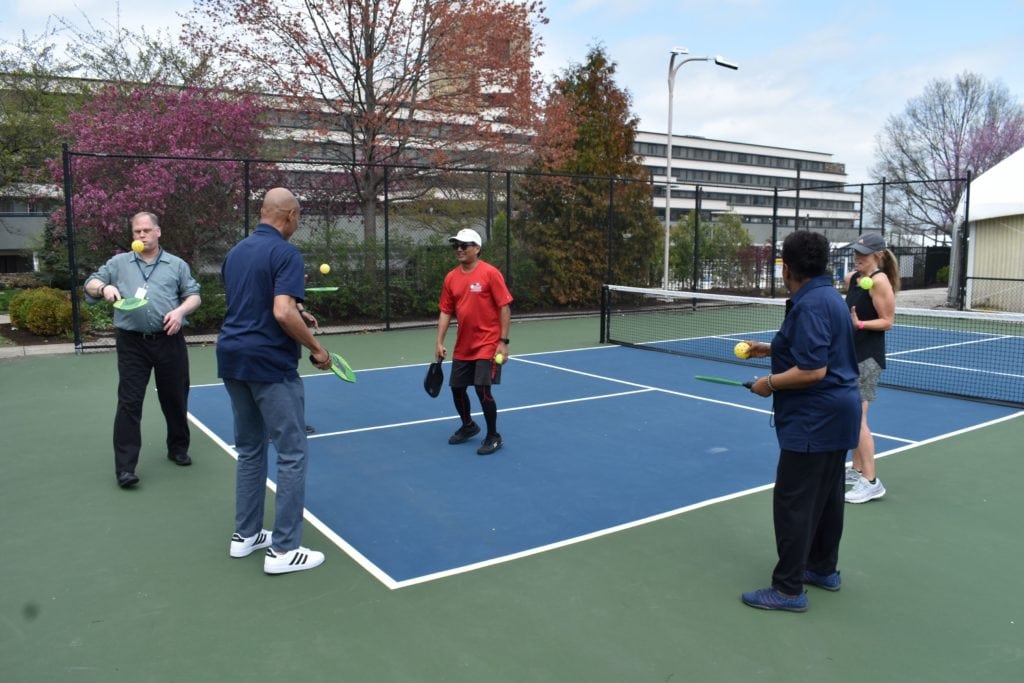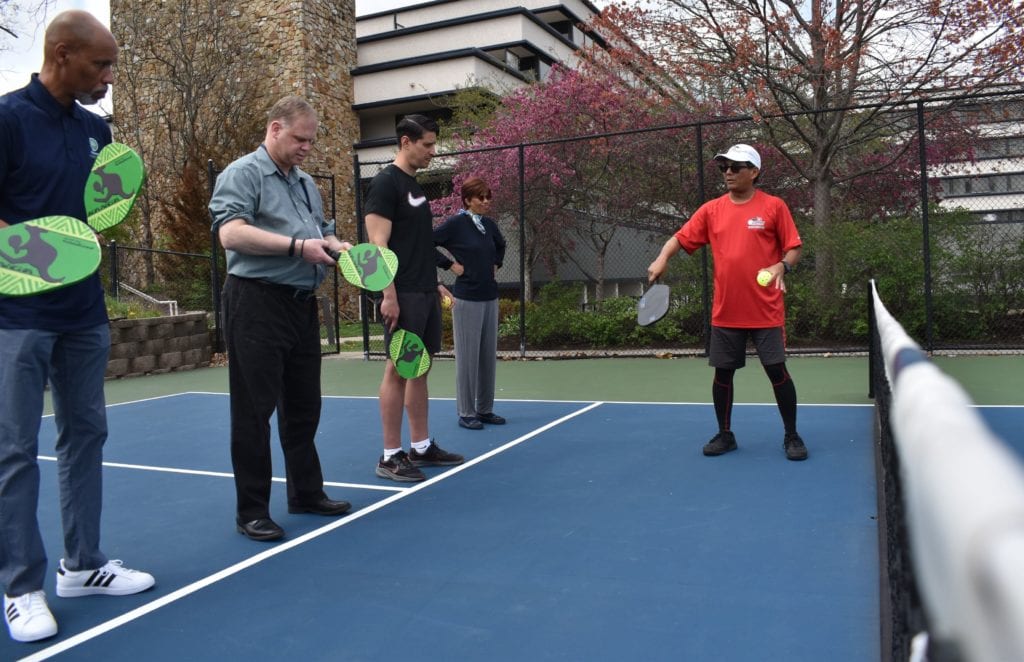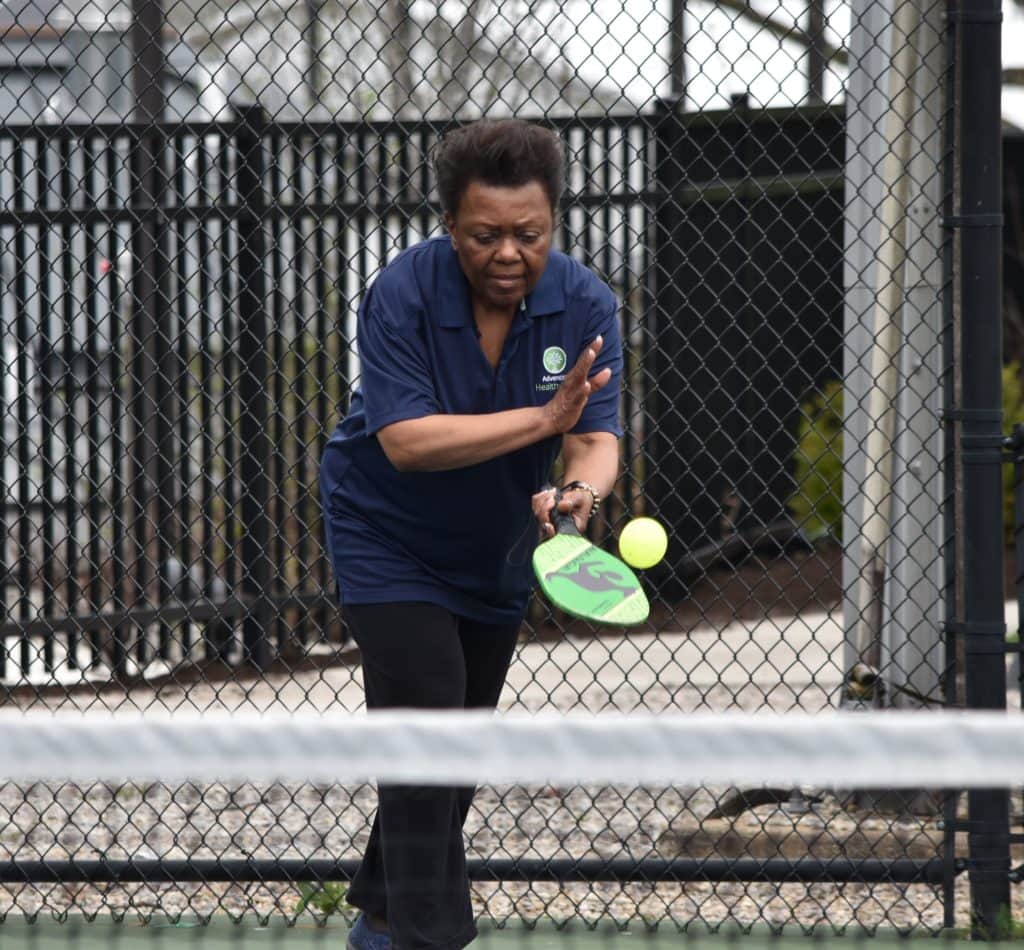
Even pickleball can be an effective tool to reach out to others and get the community to know more about Seventh-day Adventists, Loma Linda University physician Ernie Medina Jr. said. On April 4, Medina’s presentation at the Health Summit of the North American Division of the Seventh-day Adventist Church in Lexington, Kentucky, United States, highlighted the outreach potential of the latest sport trend.
A Sport Called Pickleball
Pickleball is a racket or paddle sport similar to tennis, but uses a perforated, hollow plastic ball instead of a tennis ball. It was invented as a children’s backyard game in 1965 in the state of Washington, United States.
In the last few years, the number of pickleball players has skyrocketed across the U.S. Its popularity, in part, relies on the fact that it is easier to play than tennis and is friendly for all ages. The playing court is also smaller, so it’s not difficult to make informal pickleball “courts” in playgrounds and even church parking lots.
Medina, a doctor in public health known as “the exercise evangelist,” began to play pickleball in 2016. He eventually became a certified pickleball coach, and is currently vice-chair of the board of directors of USA Pickleball, the sport’s governing body in the U.S.
But at the NAD Health Summit, Medina not only talked the talk: He invited participants to register for a free pickleball class in the afternoon. Dozens of event attendees registered and tried the sport for the first time in their lives.
“With just a little bit of practice, you’ll be able to play,” Medina told eager learners of all ages and fitness levels. “You can do it!”



Pickleball and Mission
Besides teaching the basics of the sport, Medina emphasized how pickleball is already changing the way many local churches see outreach. Its potential for helping church members to share health principles in a different way and to a different public, he said, should not be underestimated.
Medina displayed photos showing how, across the U.S., an increasing number of Adventist congregations are painting pickleball court lines in their parking lots and inviting acquaintances and neighbors to play. The initiative is a win-win situation, he said, as church members exercise more and at the same time connect and share Bible health principles with people who perhaps wouldn’t attend an evangelistic series in the sanctuary, at least at first.
A Witnessing Opportunity
Friendships such as the ones brought about by informal pickleball matches open possibilities for discussing Adventist health principles in a non-threatening environment, Medina said.
More than once, those attracted by free pickleball classes or matches kept asking more about the church and eventually decided to attend the local church services. In some cases, people from the community requested Bible studies. Medina knows of at least one woman who eventually was baptized after making her first contact with the church through a pickleball club at the local Adventist church.
“Pickleball can certainly be a tool for outreach and evangelism,” Medina said. “As we share our principles on the court, God will work through the example of our lives to draw more people to Himself.”